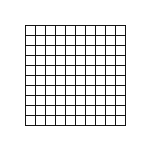|
Also Arcane's politics aren't hard to work out, seeing as the primary protagonists are people pushing against the current stagnant abusive system. Even if they make mis-steps. Vi and Caitlyn both work to convince the council they've failed Zaun, Viktor and Jayce work to improve the lives of all people through their technology instead of waiting till it might be too late. The primary message is that change is good, systemic abuse is bad, and that obsession is dangerous if allowed to turn into mania.
|
|
|
|

|
| # ? Jun 7, 2024 22:55 |
|
It also has the (extremely stupid) "violence can't bring about change" thing that marks someone who hasn't read a history book since they graduated high school
|
|
|
|
AnEdgelord posted:It also has the (extremely stupid) "violence can't bring about change" thing that marks someone who hasn't read a history book since they graduated high school An episode is literally titled "The Base Violence Necessary for Change." Also the only thing that actually causes any change at all is the response to violence. Like, straight up the situation at the end between Jayce and SIlco only occurred because of the violence that had been going on, violence is seen as a terrifying thing (because it is) but it never tries to claim violence doesn't bring about change. It just has the (perhaps impossibly so) optimistic message that change without violence is preferable, and that at some point violence does more harm than good.
|
|
|
|
Lord_Magmar posted:It just has the (perhaps impossibly so) optimistic message that change without violence is preferable, and that at some point violence does more harm than good. That's not politics; that's a Facebook status quote.
|
|
|
|
I think these takes are reading too intensively into some kind of implied judgment of political or moral authority the show's meta-narrative has for the events and characters it's depicting. There is a moral telos, in the sense that it portrays very apparently its sensibilities on the predatory or neglectful transgressions of individuals and systems against those transgressed, but it does not evaluate its characters, the "revolutionary struggle" or desire for change in terms of improvement of material conditions and autonomy by what is "right" or "wrong." It supplies very clearly and reiteratively the notion that sacrifice is necessary for change, so much so that I would say it's the central theme of the show and its politics. The framing against which this casts itself in opposition to the struggle, revolutionary or otherwise, of its characters against their limitations or oppressors is in the depiction of the implicit question of whether the outcome is worth the price of the sacrifice. Are your revolutionary struggles worthwhile if you lose those people and things most important to you, or if you neglect or even harm the supposed beneficiaries of your technological or political revolution? That it suggests this question does give it a counter-revolutionary angle, yes, but the "righteousness" of whether the sacrifice should or should not be made is not raised in any narrative perspective except in the characters' own reflections upon their actions and what should be done. And this is itself fair and appropriate, providing us with believable characters that make their decisions on a reasonable individual basis instead of a predominantly ideological one, one which would be more appropriate in a grand historical narrative. This is a story that focuses on its characters as individuals and not instruments in a greater political conflict of the struggle between historical forces; we are given direct exposure to the highest level decision-makers and obstacles to positive change on both sides, and the framing of what is "right" for them to do, even as they are cast as villains, is only ever structured along what is in their interests. When the realisation or preservation of their interests comes into conflict with an obstacle or even one interest against another interest, the measure of the sacrifice necessary is the driving impediment to change, and this is recognised by each character, as an autonomous actor, balancing their own moral or material compunctions against the cost of the consequences or losses they must incur to attain their desired ends. Some of these are of course reprehensible to our sensibilities of morality and justice, like Singed and most of the Piltover council, but nevertheless the depiction of their individual agency is still the central dimension of analysis. The balance upon which they weigh their choices are never left solely as the domain of a political or ideological question, but rather as a more essentially philosophical and personal one. What is the price of your adoptive family of children, or of one daughter, for national liberation; or the price of one child in the crossfire to preserve your society against violent insurgents threatening the technological revolution you've built; or the price of compromising your own integrity, class solidarity, and loyalty to your family, to help an agent of your oppressors attempt to possibly "avert disaster" and perpetuate the system but for small, uncertain changes; or the price of a royal family's juvenile last scion for the legitimacy and stability of your new regime; or the price of waging a protracted civil war against the masses that have rejected your negligent rule; or the price of animals and addicts for the perfection of your impossibly useful medicine; or the price of your ivory-tower intellectualism that strives to pursue only "safe", constrained progress; or the price of the next step in the refinement of an unusual and dangerous technology for the potential uses it offers for your society and your own self-preservation; or the moral and personal price of anything, really, but for what and whether you, yourself, think it is worthwhile to pay or not? In most of these cases, if not all, the price was deliberately weighed and the sacrifice made or rejected as per each character's own moral and personal burden, even with the political stakes each case involved. The value judgment is not made by the authors or animators except in the most aesthetic sense of depicting a dead child or intubated animal as obviously bad, distressing things. There is no political judgment to be made of the reactionary Piltover society or of Jayce, as an agent of reactionary forces or otherwise, when he decides to abandon his militaristic approach because he caused the death of a child; it is personal, moral judgment, even as the death of the child may be framed as an indirect consequence of the overarching political struggle. The show is not making an ideological or analytical judgment of the relevant systems and their overarching political narrative when it drives the story forward according to these beats, but rather I would suggest it is offering a thematic exploration of individual sacrifice against greater ideals of progress and the improvement of conditions, and the emergent outcomes of the choices involved. A character drama is not incompatible with political analysis, but making a recurrent attempt to try and derive the essence of the characters from an imposed ideological read that incompletely, clumsily maps to the circumstances depicted in the narrative is backwards and inevitably loses sight of the story's aims and the human focus at its core.
|
|
|
|
An obsession with Theory above all else to the point of actively avoiding human readings is a good example of some of the behavioral patterns that cause progressives/leftists to have a really hard time appealing to anyone and the whole ‘losing ground on a global scale’ thing, which sucks rather a lot. It is fun to disappear up one’s own rear end in a top hat every now and then but maybe not for this many pages.
|
|
|
|
Captain Oblivious posted:It is fun to disappear up one’s own rear end in a top hat every now and then but maybe not for this many pages. But how else will people know I'm smarter than them? 
|
|
|
|
Rarity posted:But how else will people know I'm smarter than them? Post in Cinema Discusso of course.
|
|
|
|
Haha yeah this was a fun cartoon!
|
|
|
|
Hiveminded posted:This is a story that focuses on its characters as individuals and not instruments in a greater political conflict of the struggle between historical forces; we are given direct exposure to the highest level decision-makers and obstacles to positive change on both sides, and the framing of what is "right" for them to do, even as they are cast as villains, is only ever structured along what is in their interests. When the realisation or preservation of their interests comes into conflict with an obstacle or even one interest against another interest, the measure of the sacrifice necessary is the driving impediment to change, and this is recognised by each character, as an autonomous actor, balancing their own moral or material compunctions against the cost of the consequences or losses they must incur to attain their desired ends. Some of these are of course reprehensible to our sensibilities of morality and justice, like Singed and most of the Piltover council, but nevertheless the depiction of their individual agency is still the central dimension of analysis. The balance upon which they weigh their choices are never left solely as the domain of a political or ideological question, but rather as a more essentially philosophical and personal one. Tied up in your meta-critique is the primacy of authorial intent in the idea that the correct interpretative approach must be subordinate to the work’s ‘obvious’ intent. But this is an appeal to authority that isn't actually there — ‘Death of the Author’, ‘The Big Other doesn't exist’, etc. etc. Such an appeal would mean there’s no substance in making a political reading of a McDonald’s commercial featuring young, attractive, smiling people dancing to hip-hop because focus is deflected from the narrative's prioritization of the “human core”. So, economics/commerce always plays a role in art, as the production process cannot be separated from the product; in Arcane’s case, what we have is a cultural product tasked to render violent class-struggle broadly palatable to a global audience. Intertwined with this is the historical/political: as a series primarily dedicating its run-time to its characters psychological conditions and moral quandaries does not, even minutely, preclude it from the historical/political domain. In fact, utilizing that kind of individualistic form in a story about violent class struggle is a political choice, whether conscious or unconscious, as this manner of storytelling only came into being relatively recently in human history when the Enlightenment’s ‘Cartesian Subject’ opened up the space for the 18th-20th century literary movements of Romanticism/Realism/Modernism's elaboration on what is termed the 'bourgeois individualism' perspective. It is important to politicize because it is the horizon of thought. For example, racists & sexists feel that they are absolutely right, both morally and philosophically, but ideological critique allows us to map out the specific structure of their racist/sexist fantasies that constitutes their conscious thought, and directly attack their ethical claim. So what we're talking about are fictional characters made/portrayed in a particular way by artists, not a historical document of actual events. And even then, documentaries (Despite general perceptions) do not 'capture reality'. What the documentarian chooses to frame, questions they ask/answer, and how it's edited/presented/etc. are just as important as the subject matter being documented. quote:Because the ideal of the pure documentary uncontaminated by the subjective vagaries of representation is forever upheld, all nonfiction film is thus deemed to be unable to live up to its intention, so documentary becomes what you do when you have failed. Bruzzi refers here to how neutrality doesn’t exist in storytelling because it functions in the domain of representation, therefore ‘inheriting’ its theoretical limitations. Of course, the domain of representation extends far beyond art, which is why literary theory is important. All that is to say: it's not possible to fully repress the political/historical/economic in a story, and I'm interested in reading the specifics of how my analysis violates the 'essence' of Arcane. Supposedly, what I'm doing is a rhetorical trick intended to obscure how I'm writing nonsense; but posters seem unwilling to answer straight-forward questions like, "Was the Algerian struggle for independent nationhood not leftist?" Jihad Joe posted:Haha yeah this was a fun cartoon! Yeah, it's pretty good. KVeezy3 fucked around with this message at 12:59 on Jan 21, 2022 |
|
|
|
Captain Oblivious posted:An obsession with Theory above all else to the point of actively avoiding human readings is a good example of some of the behavioral patterns that cause progressives/leftists to have a really hard time appealing to anyone and the whole ‘losing ground on a global scale’ thing, which sucks rather a lot. Im sorry but this post about how the posts you dont like in this thread about a tv show are indicative of the decline of the global left shows that you are huffing your own farts WAY harder than anyone else in this thread.
|
|
|
|
Are we gonna argue for six pages about who's huffing who's farts now
|
|
|
|
Jihad Joe posted:Haha yeah this was a fun cartoon! You know what was cool? When Vi punched stuff.
|
|
|
|
Dawgstar posted:You know what was cool? When Vi punched stuff. 
|
|
|
|
AnEdgelord posted:Im sorry but this post about how the posts you dont like in this thread about a tv show are indicative of the decline of the global left shows that you are huffing your own farts WAY harder than anyone else in this thread. Good thing I didn’t say that, but I can’t make you read the post. It was very specifically qualified for a reason!
|
|
|
|
Counterpoint: analyzing things deeply is good and cool, even if the Thing in question is a cartoon based on a video game. Human civilization has been choosing the “let’s just go with our gut on this” path far too much recently. Understanding why Things are the way they are, and speculating on how they could be better, is a worthy pursuit. I can also understand the impulse to say, “I’m exhausted as hell, I just want to enjoy the cartoon.” If that’s your bag, just skip the PoliSci posts. And finally: it *is* really cool when Vi punches things, but I submit that it’s even cooler when she’s shown in slow-motion silhouette, leaping through the air, *about* to punch something.
|
|
|
|
i thought it was cool when jayce was blasting things with the hammer and oh whoops killed a kid
|
|
|
|
Good show!
|
|
|
|
I don't know if this has been posted and I don't want to slog through the poo poo of the last ten pages so here it is again if it has: https://www.youtube.com/watch?v=_WaTShr7amo
|
|
|
|
Phenotype posted:i thought it was cool when jayce was blasting things with the hammer and oh whoops killed a kid The show's go-to thing is stealing the gently caress-yeah cathartic triumph and making it all turn to ash. In a lesser show, Powder would have shown up and saved the day with her newly-mastered explosives; Vi would have gone to the flare and saved her sister; Jayce would have blasted the crap out of the drug plant and been the Big drat Hero he imagined himself as since childhood. Instead, they have things blow up in ways that you don't expect, but seem perfectly inevitable after the fact.
|
|
|
|
There's some really great craft and perfect beats in this show, but it's incredibly frustrating and really fumbles the ball by the end. Vander's dilemma in the first couple of episodes is literally a more impactful moral crisis and piece of characterisation than anything else in the entire show. You have a group of actual characters making difficult but crucially understandable choices and facing consequences for those choices - a good story. But then the beef between Vi and Jinx they kinda drag out the misunderstanding and instead of making anything about the ideological differences (they very easily could've played Silco as a more militant revolutionary vs Vander and instill that in Jinx to earn that ending), they instead just kinda lean on 'jinx be ka-razy tho' as a plotpoint with this incredibly weak and cliche and unearned 'jealous of Caitlin' stuff, and it's a total mess. Further bogged down by the invincibility of characters when you realise which ones are in the actual game which is real weird to think about. Also pretty much all of the Jayce/Palace scenes are an incredible drag, just total boring pace killers with stock dialogue. Vi staring the dude with the knife out was more exciting conclusion of conflict than the entire ten episodes.
|
|
|
|
What a great show!
|
|
|
|
YggdrasilTM posted:What a great show! This deserves to be repeated often. So good!
|
|
|
|
Watched a few episodes for the second time and it still rips with the caveat that I occasionally get imagine dragons stuck in my head. e: vv this song is good thanks vv Lazy_Liberal fucked around with this message at 19:13 on Jan 30, 2022 |
|
|
|
Lazy_Liberal posted:Watched a few episodes for the second time and it still rips with the caveat that I occasionally get imagine dragons stuck in my head. Watch it enough times and maybe Dynasties and Dystopia will get lodged there instead, like it did with me. (That has to be up there with some of the best use of music with animation, yes? Yes, good, glad we have an accord.)
|
|
|
|
YggdrasilTM posted:What a great show! 
|
|
|
|
Just wanted to say thank you for the political science deep dive posts. That recent Miracle of Sound fan-song reminded me about Arcane, and I ended up googling for discussions to see what other people thought of it. I really appreciate this thread's digging into the themes and how the social context Arcane was created in affect its meaning. Thanks, I hope you all have a great day!
|
|
|
|
VagueRant posted:But then the beef between Vi and Jinx they kinda drag out the misunderstanding and instead of making anything about the ideological differences (they very easily could've played Silco as a more militant revolutionary vs Vander and instill that in Jinx to earn that ending), they instead just kinda lean on 'jinx be ka-razy tho' as a plotpoint with this incredibly weak and cliche and unearned 'jealous of Caitlin' stuff, and it's a total mess. The Vi/Jinx conflict starts with that interpersonal misunderstanding, but what ultimately drives it post-time-skip is predicated on their relative positions on the ideological spectrum. Jinx’s trauma first reemerges when she mistakes a similar looking Firelight soldier for Vi, as someone operating in an opposing faction of the underclass. But what lies beyond that phantasm may possibly be even worse, as Sevika taunts Jinx with the idea that Vi actually has returned — but specifically as an emissary of Piltover with an Enforcer in tow. Conversely, Vi is aghast at Jinx’s radicalization; and when she comes face-to-face with the ruling class, becomes incensed when they seriously consider a diplomatic solution with Silco’s rebellion as opposed to committing to its outright destruction. In turn, Vi enacts a one-woman war on Silco to free Jinx of his corruptive influence. In Arcane’s world of scientism, even magic exists only to become an economic resource to be extracted and integrated into the mode of production. It’s in this hyper-secular context that there emerges a moment of authentic spirituality in Jinx’s moment with Silco: baptism rebirth imagery is utilized to emphasize the absolution of their worldly attachments in order to dedicate themselves completely to revolutionary emancipation. In their first meeting post-time-skip, Jinx immediately becomes suspicious of Vi’s true intentions, and questions whether she’s only there to exploit their personal relationship in order to weaken the rebellion. Then the Firelights attack and disappear with Vi, Caitlyn, and the gemstone. Jinx later confoundingly finds Vi, Caitlyn, and the Firelight leader with the gemstone in hand heading straight to Piltover, seemingly confirming her initial paranoia about Vi. At the ‘Dinner Table’ scene, Silco’s asserts to Jinx that Vi will never really accept her, and Caitlyn declares to Vi that Jinx is too far gone. But Jinx cuts through everything by forcing Vi to violently declare her true position once and for all. As such, Jinx’s beef with Caitlyn isn’t just some strained psychosexual fixation, but the symbolic representation of the ideological gap between Vi & Jinx that, despite their personal love for one another, prevents genuine reconciliation. KVeezy3 fucked around with this message at 19:44 on Jan 31, 2022 |
|
|
|
At no point does Jinx ever show she's engaged in any part of Silco's ideological stance, even after the baptism, or have any investment in the rebellion or the class conflict.
|
|
|
|
Enforcers killed Jinx's parents during an underclass uprising and she now follows in their footsteps by participating in a resurgent rebellion; of one she's such an active combatant that she'd rather sacrifice her life in a suicide bombing rather than surrender to the enemy. But if what you're looking for is somewhere along the lines of Jinx stares directly into camera saying, "I believe in violent class struggle", pre-time-skip and pre-Silco, she excitedly pushes for participation in a potential violent underclass uprising, which is juxtaposed against a far more reluctant Vi.
|
|
|
|
Your gimmick is bad. I'm totally about violent uprising against capitalism, and this is just bad mockery that makes other people feel like any political analysis of a work is just a lunatic thing. That said, I don't want to flame. I'll just put you on ignore.
YggdrasilTM fucked around with this message at 22:21 on Jan 31, 2022 |
|
|
|
i like when jinx blows up the cops vvv big same vvv Lazy_Liberal fucked around with this message at 22:42 on Jan 31, 2022 |
|
|
|
I liked when the gay punch lady punched stuff
|
|
|
|
Rarity posted:I liked when the gay punch lady punched stuff What about when the other gay lady shot stuff?
|
|
|
|
Dawgstar posted:What about when the other gay lady shot stuff? I liked this too
|
|
|
|
KVeezy3 posted:Enforcers killed Jinx's parents during an underclass uprising and she now follows in their footsteps by participating in a resurgent rebellion; of one she's such an active combatant that she'd rather sacrifice her life in a suicide bombing rather than surrender to the enemy. To Powder, the enforcers aren't oppressors, just a bigger gang that has hurt her personally, and she desires revenge, period. As Jinx, she never grows out of a completely personal revenge-based outlook.
|
|
|
|
Rarity posted:I liked when the gay punch lady punched stuff 
|
|
|
|
Madurai posted:At no point does Jinx ever show she's engaged in any part of Silco's ideological stance, even after the baptism, or have any investment in the rebellion or the class conflict. she tries to sacrifice herself with the grenade to get rid of ekko
|
|
|
|
curiousCat posted:she tries to sacrifice herself with the grenade to get rid of ekko Yeah, sure, she did a suicide attack, people do suicide attacks only for political reasons. I'm sure Jinx has some sort of loyalty to Silco's cause, even if just born from her love to Silco and general animosity against Piltover and the enforcers, but framing the whole finale exchange on the dinner table, where her whole proposal was "I'll go back to be Powder" (so "I'll undo these past seven years of violence"), as a action to test Vi loyalty to Zaun is nonsense. YggdrasilTM fucked around with this message at 06:36 on Feb 1, 2022 |
|
|
|

|
| # ? Jun 7, 2024 22:55 |
|
There are a number of ways you could interpret the grenade scene that tie in with aspects of Jinx story that are explicit in other parts of the series:
She already has the crystal at that point, she's not fighting for Silco, she's living out a personal grudge. It's also not a suicide attack. If she intended to die at all, it's something she decided on the spot. That said, while I think the specific claims made about Arcane in this context are kind of ridiculous, I did enjoy learning some stuff about political readings of mass media so carry on.
|
|
|



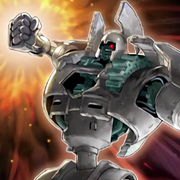










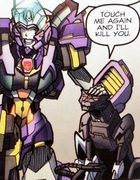


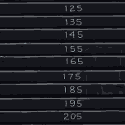
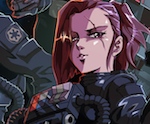

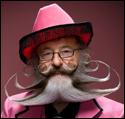
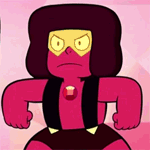
 precious
precious 


